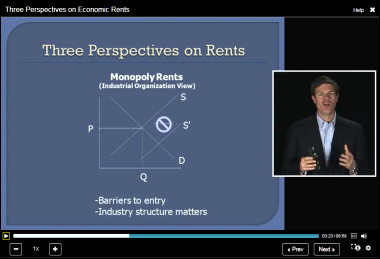The title of my previous post, Let’s get rid of the instructional designers!, was a tongue-in-cheek reference to a radical view of instructional design.
I think it would be safe to say that the vast majority of us in the L&D profession do not advocate the riddance of instructional designers. On the contrary, they are the experts in a science that is critical to the overall performance of the organisation.
The title of this post however, while similarly tongue-in-cheek on my part, is much less so on the part of many of my peers.
We live in an era where “training”, “lecture”, “course” and even “teaching” have become dirty words. In their place, a learner-centered vocabulary espousing “inquiry”, “exploration” and “discovery” are the soupe du jour.
A manifestation of this trend is no more vivid than in the invective directed at MOOCs – or more accurately, xMOOCs. To many L&D folks, these types of courses (there’s that word again) are mere replicas of the lectures and exams that they so despise. Ergo, xMOOCs are bad.
Now I maintain this view sells xMOOCs short, but for the sake of argument I’m willing to pretend that this mode of delivery is devoid of constructivist empowerment. I acknowledge that many MOOCs do replicate olde worlde instructivism, at least in part.
And here’s where I propose something counter-radical: Sometimes that’s a good thing.
Indeed, I advocate direct instruction under the following circumstances:
1. When the learner is a novice.
Novice learners don’t know what they need to know. But the expert does.
By adopting an instructivist approach, the expert can scaffold the learning experience and construct a foundational framework for the subject matter. The learner can then build upon this foundation by other means.
2. When the subject matter is complex.
By definition, complex subject matter consists of interconnected parts which may be difficult to make sense of through inquiry, exploration and discovery.
Sometimes it makes more sense to have someone who understands the system explain it to you end-to-end.
3. When the subject matter is black & white.
It’s worth noting that complex is not the same as complicated, whereby inquiry, exploration and discovery may be eminently suitable for gathering multiple versions of the “truth”.
Geopolitics springs to mind, but cooler headed topics such as strategic thinking and decision-making are also highly dependent on context, lending themselves to a more constructivist approach.
But not all topics are like that. Consider financial statement analysis: the content is so straight-forward that it would make little sense to inquire, explore and discover, when you could simply see how it’s done and practise it for yourself.
4. When speed to competence is important.
Learners in the workplace are time poor, and whatever the topic, their employer demands that they get up to speed quickly. Otherwise, don’t come Monday.
These people don’t have the luxury of a semester to inquire, explore and discover. They need to know what they need to know now.
5. When the learning outcome is non-negotiable.
There are some things that your employer must know that you know. It may be critical to your role, a compliance obligation, or a risk management issue; so it can’t be left to chance.
Personally, I think the indicator of must-know learning is its assessment. I wouldn’t care so much where, when or even how you learned it, so long as you did.
However, I can also see that if an employer found itself in court because one of its employees sexually harassed one of his colleagues, it would want to demonstrate that it had provided sufficient training to that individual.
6. When the learner is less inclined.
We in the L&D industry tend to believe (or want to believe) that our target audience is just like us. They’re self-motivated individuals with a hunger to inquire, explore and discover.
The truth, of course, is that our target audience occupies the full spectrum of autodidactism. And dare I suggest many huddle at the lower end.

Getting back to xMOOCs specifically, another point I wish to make is that just because they are delivered in an instructivist manner, does not mean they must be consumed in an instructivist manner.
While the learner is free to work their way through the curriculum along the pre-defined weekly path, they are also free to inquire, explore and discover at their discretion within a thoughtfully structured environment.
But oh no! If we empower the learner to drive their own MOOC experience, they might not finish it!
As history reminds us time and time again, no one view is ever the “right” one – at least, not all the time.
Our perspective is so dependent on the circumstances that we learning pro’s must appreciate the problem before trumpeting or poopooing the solution.
Just as it makes little sense to get rid of the instructional designers, it makes little sense to get rid of the instructors. Instead, let’s get smarter about instruction.


